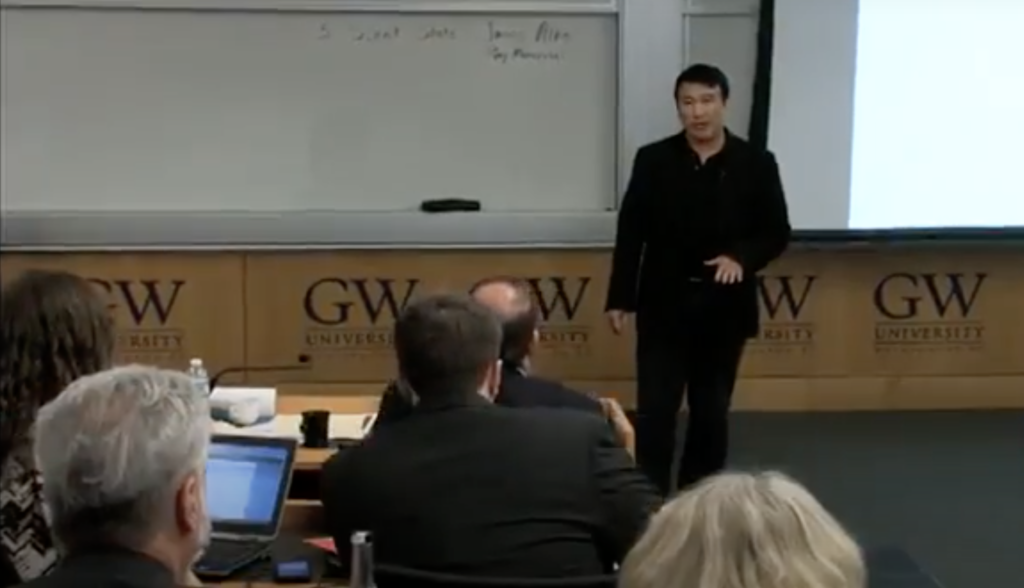We applied for the GWU Business Plan competition three times, hoping that indeed the third and last time was the charm. Unfortunately, all the leprechauns in the world could not help us. Each time, we advanced to the semifinals, but the finals turned out to be our tough mudder.
The second time, was the most promising, where we came in 9th, so we served as a back-up just in case one of the top eight teams couldn’t present. Unfortunately, we weren’t asked to pinch-hit and we went back to the drawing board for the following year.
Then, on April 2, 2013, I got the dreaded news that once again we didn’t make the cut.
* * *
April 2, 2013
Chito,
I was shocked that RUNINOut did not advance to the finals, since you were ranked #9 last year! I didn’t read your 20-page business plan this time, but the feedback from the judges this year will give you more insights into why this happened, and you will receive it much sooner than before. That’s all because I put an emphasis on upgrading this year to an online scoring/commenting system which means no re-keying of the judges’ comments.
Please let me know if there’s anything I can do to help RUNINOut continue to grow and thrive.
John Rollins
* * *
Professor Rollins explained to me that the independent group of judges (mostly non-faculty business leaders) may not have had the insight to select the top teams. The business school was pulling for me, but since they had to keep the competition objective, they had no say in the matter.
Not only did the rejection sting, but the elimination kept us from securing funding. That’s because the university published the results online so venture capitalists (VC) were privy to this info.
My alma mater wasn’t the only one that rejected us. We were also spurned by D.C.’s VC firm and accelerator Fortify as well as Baltimore’s Emerging Technology Center. An accelerator takes an early-stage startup that has already developed a minimum viable product and helps them secure resources and capital funding. They also provide a nominal amount of funding in return for a small equity stake, normally 5-10%.
So was acceptance to an accelerator the right path for RUNINOut? Without mentorship and funding, our chances of reaching rapid growth were slim to none. It didn’t mean that our business model wasn’t sound or that we would never be profitable. But it likely meant our company would focus on lifestyle instead of growth, on income rather than revenue, on bootstrapping instead of venture capital, and instead of advertising, we would rely on face-to-face guerrilla marketing.
This new path was right up our alley. Since we hosted several events a month, we had developed a knack for gaining traction and creating a buzz. We provided value, engagement, and fun, and in return, our attendees spread the word virally and gave us raving reviews online.
A week after receiving the bad news from GWU, Suzannah woke me up with some glad tidings. We were selected as the “Best Restaurant App” in the Washington City Paper Readers’ Choice poll.
After dozens and dozens of events, miles, and miles of pedicab rides, and tons of food blogs, the hard work seemed to have paid off.
I called Gregg Coppen, the web developer from Vancouver, and he almost fell off his chair. “I’m so glad we decided to add the faceted search at the last minute — this feature must have been popular with restaurant-goers.”
He was so proud to add the new “Best App” tag to his portfolio and exuberant that he could make a tremendous impact thousands of miles away.
“When you approached us two years ago, we were hesitant to take on this project on a shoestring budget. But looking back, I’m damn glad we trusted our intuition.”
“Yes, it’s amazing what we can accomplish if we all work together, communicate and innovate.”
Soon, I shared the news with Professor Rollins.
“What, you beat Yelp, Foodspotting and Urban Table?”
“It’s hard to believe — it was really the matter of getting name recognition and we did that by gaining traction.”
“I tell you what. You guys didn’t advance, but your company has shown user-acceptance and income – that’s really what matters, not a trophy.”
“But we still will not get a chance to present at the coveted New Venture Competition.”
“Not if I have any say in it.”
On April 22, 2013, I got the chance to do just that. I was delighted to have the opportunity to present my business and demo my site to the University where the idea was born. And that was really the most important thing — acceptance and validation from an academic institution. The consumers, we already had them in the bag.
